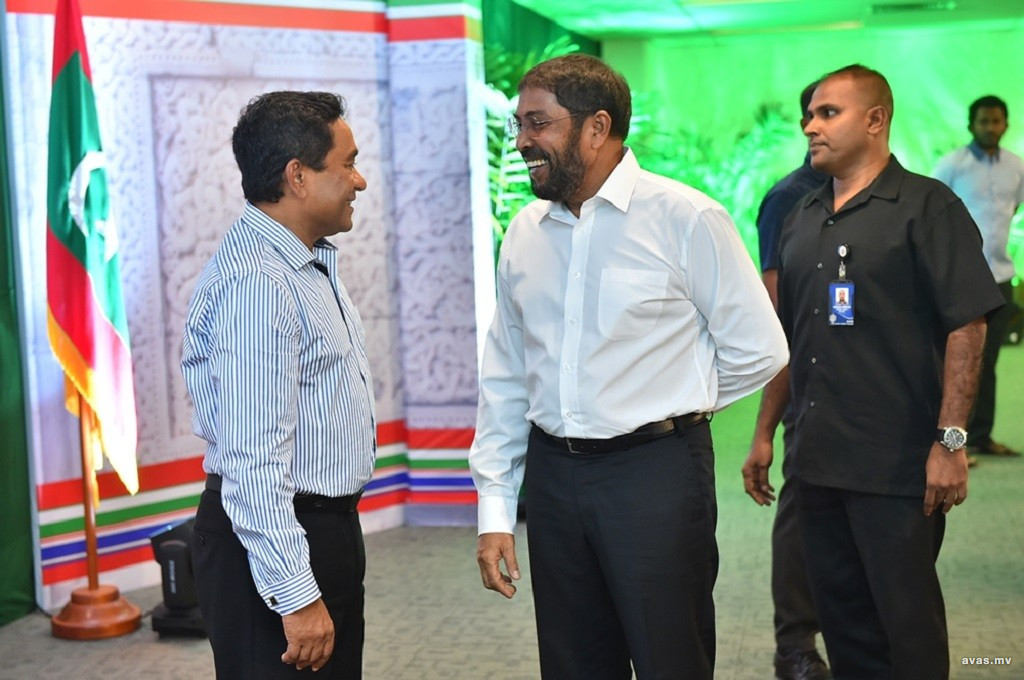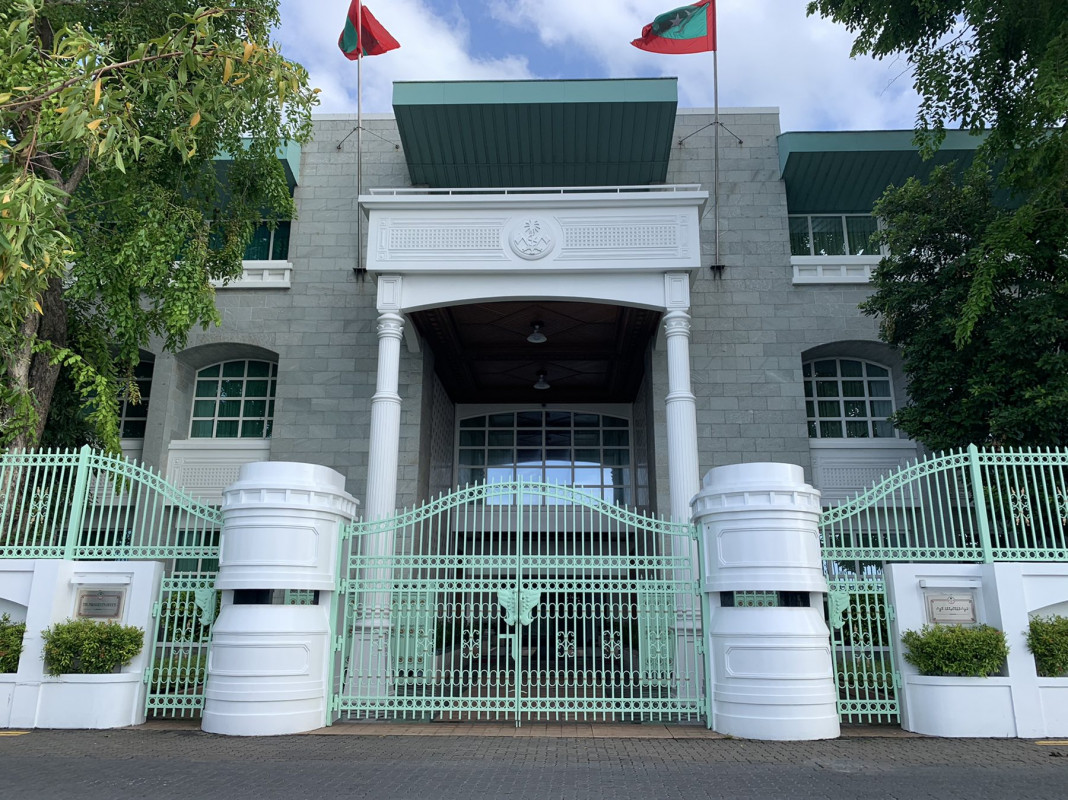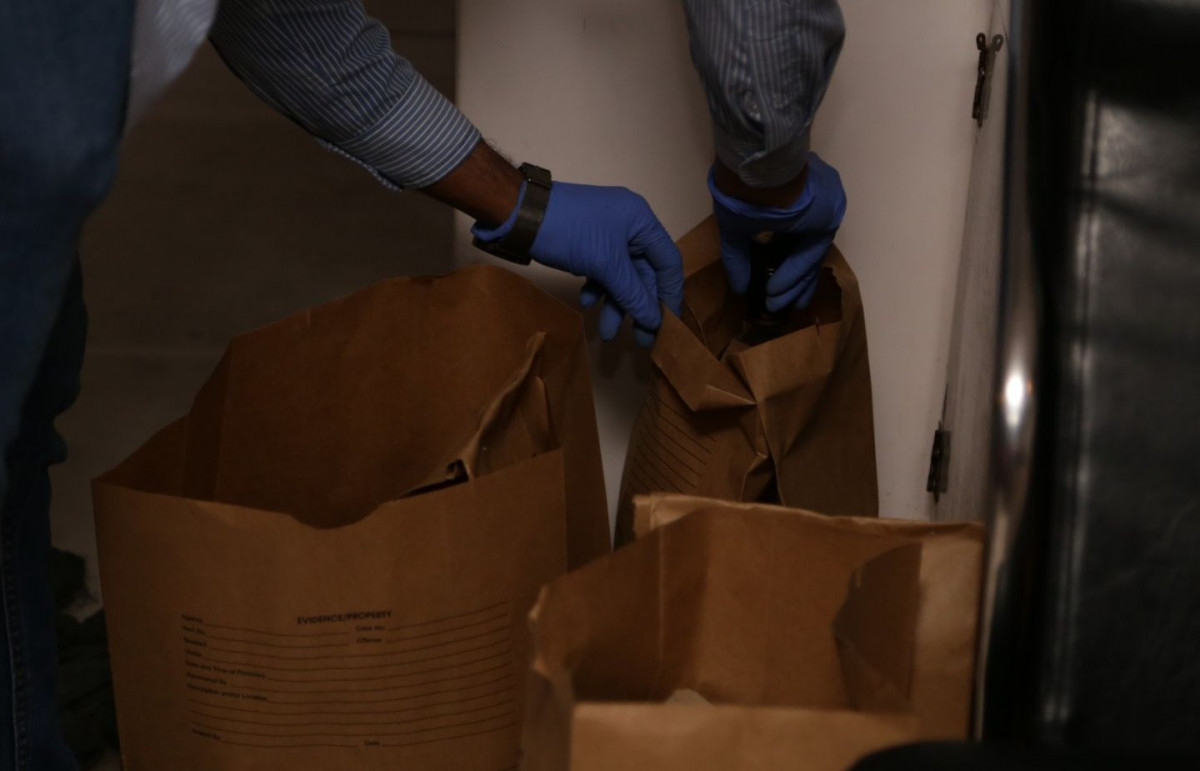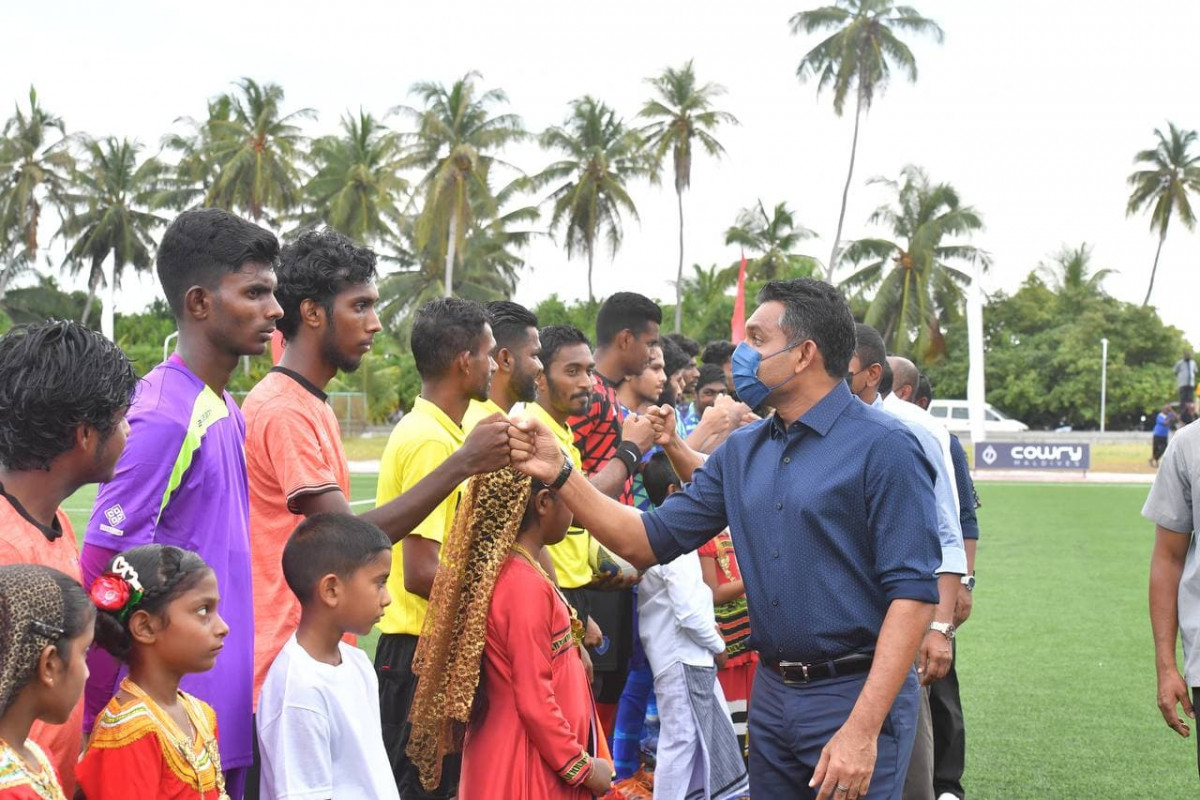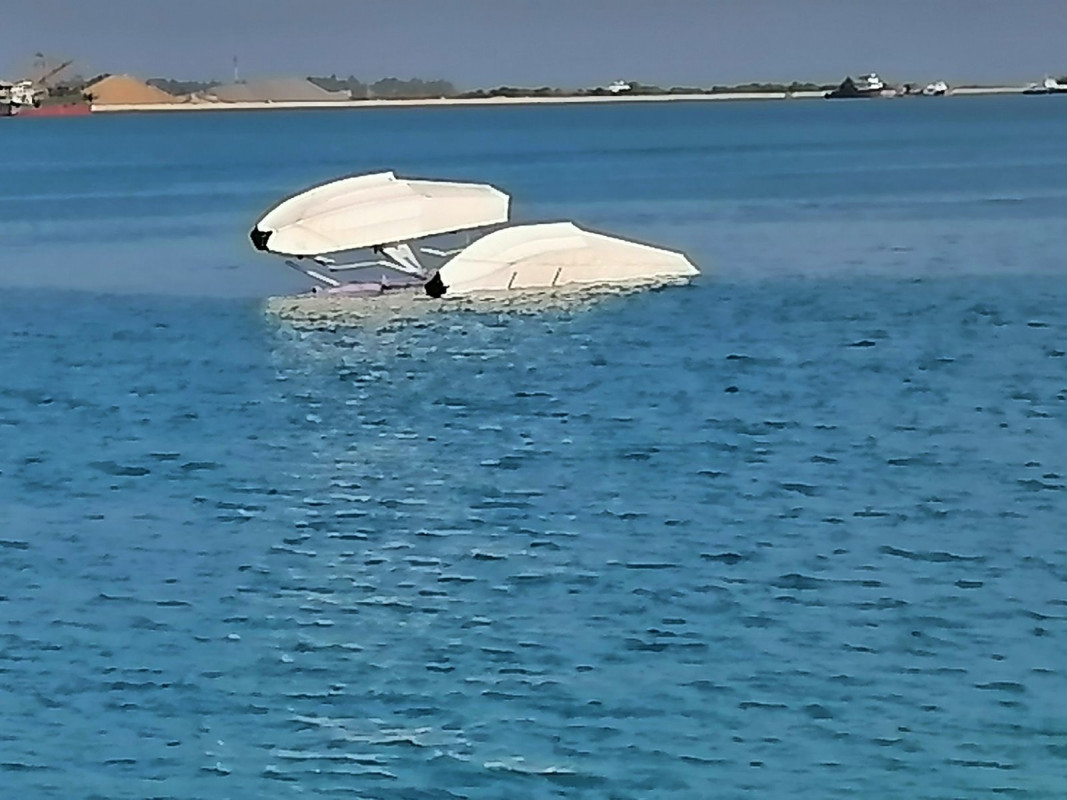PGO requests to seize former president's bank account
Former President Yameen was convicted of money-laundering charges on November 28th.

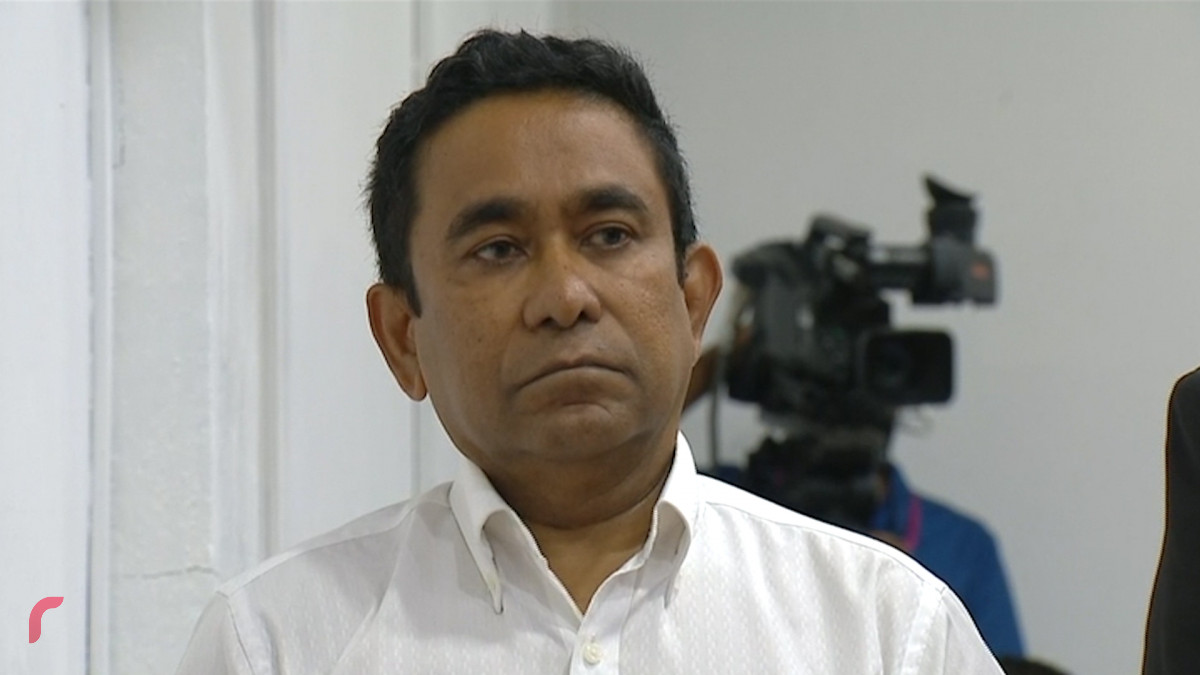
Former President Yameen Abdul Gayoom at his verdict hearing
The Prosecutor General's (PG) office has requested the criminal court to seize the funds in former President Yameen Abdul Gayoom's bank account
The PG office announced via twitter that a request has been sent to the criminal court for a warrant to seize the funds in the former president's bank account under article 192 of the Criminal Procedure Code (Act No. 12/2016) and article 62 of the Prevention of Money Laundering and Financing of Terrorism Act (10/2014).
Former President Yameen was convicted for laundering USD one million through the state-owned Maldives Marketing and Public Relations Corporation (MMPRC), via a private company SoF, during his presidency, in November.
Former President Yameen was convicted of money-laundering charges on November 28th. He was sentenced to five years in prison and fined USD five million. His sentence also states that the fine must be paid within six months to the Maldives Inland Revenue Authority (MIRA).
According to the verdict issued by the Criminal Court, the charges against Yameen were confirmed based on the evidence presented against him by the prosecution and witness statements. All five presiding judges over the trial unanimously agreed on the guilty verdict.
The presiding judges also highlighted that a political party should deposit their campaign money to the party account. This was used as a defence by Yameen saying that the money deposited into his account was campaign money owed to him by former Vice President Ahmed Adeeb. The former VP was a witness in the trial and had denied giving any orders to transfer the funds to Yameen's account.
All five presiding judges concurred that all legal elements for this act to be a crime was met.
Important highlights in the money laundering conviction include:
1. The USD one million in the former president's bank account at Maldives Islamic Bank was proved to be from the MMPRC graft from the witness statements including that of former Vice-President Ahmed Adeeb and MMPRC's former managing director Abdulla Ziyath
2. Former Vice-President Adeeb and MMPRC's former MD Ziyath stated in court that the USD one million was initially the acquisition cost from the sale of an island named Bodumulaa of Gaafu Alif atoll.
3. The money was deposited into Yameen's account through two separate cheques of USD 500,000 (five-hundred thousand) on 13th and 15th October 2019.
4. The former president called Adeeb to inquire about the delay in the deposit of the USD one million
5. When questioned by the anti-corruption commission (ACC) regarding the USD one million, Yameen made an agreement with the anti-corruption watchdog to create an escrow account at Bank of Maldives (BML) to deposit the MMPRC funds
6. Yameen violated terms of the agreement made with the anti-corruption watchdog by deposited money from the account of Moosa Zameer, a tourism minister during his presidency, into the escrow account instead of the funds from his own account which was transferred to a general investment account and used for his personal gain for 36 months.
7. Moosa Zameer witness statement showed that USD one million was transferred to the escrow account on Yameen's orders
8. Moosa Zameer acquired the funds by selling his own land in Hulhumale' for USD two million to a man named Waseem which was supported by the witness statements of both Moosa Zameer and Waseem.
9. While Yameen's defence stated that the money deposited into his account was money donated to his campaign by the Progressive Party of Maldives (PPM), Adeeb refuted this stating that the party has never received such large donations with the highest donation reaching one or two hundred thousand.
10. The Political Parties Act clearly states that funds of the political party must only be deposited to a bank account under the party's name.
